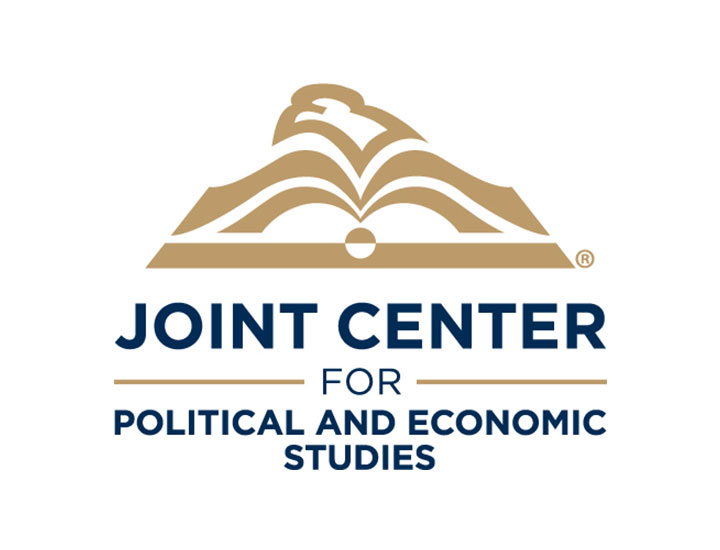
Joint Center News: April 2020
This is our regular monthly newsletter, which reviews all of our Joint Center work over the past month.
While we did not plan for the devastating impact of the current crisis on Black communities—we have responded. Every Monday we now also publish a weekly roundup of developments related to COVID-19 policy and Black communities. In addition, in April we continued our series of online policy sessions to include Black communities around the U.S. in the federal COVID-19 policy debates. We’re also working hard on policy solutions through policy briefs and opeds. Details are below, and please stay up-to-date on our work on COVID-19 policy and Black communities here.
Economic Studies
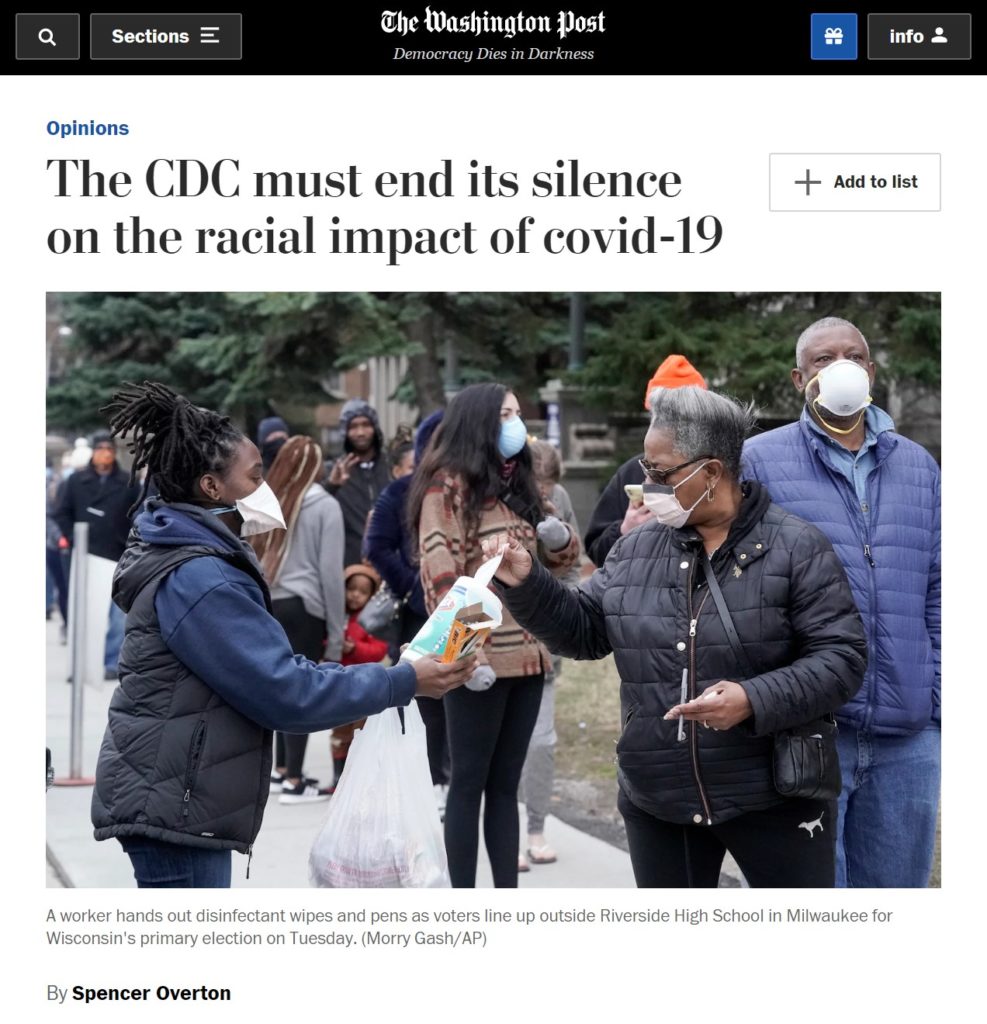
Joint Center President Spencer Overton wrote an op-ed for The Washington Post explaining why federal, state, and local governments should disclose COVID-19 cases, testing, and deaths by race to contain the spread of the coronavirus and save lives. Last week, Congress responded and passed a law requiring that the Secretary of Health and Human Services provide a monthly report on the number and rates of cases, hospitalizations, and deaths as a result of COVID-19 disaggregated by race and other demographic information. Special thanks to our partner organizations like the NAACP, the Lawyers’ Committee, the African American Mayors Association, and The Raben Group for their important work on this issue.
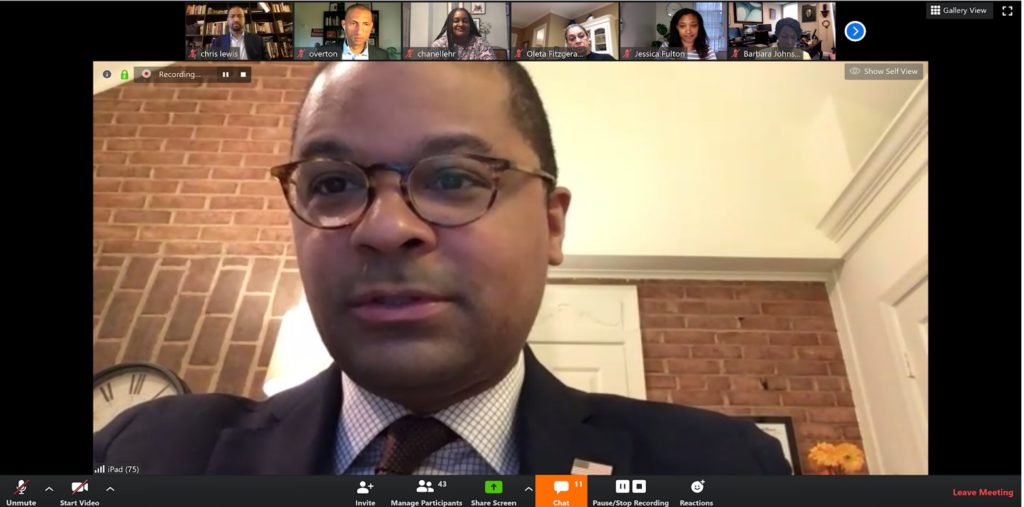
On April 7, the Joint Center convened a panel of experts and key stakeholders for an online policy forum with FCC Commissioner Geoffrey Starks to discuss the need for a “connectivity stimulus” to ensure that people in all communities are connected and have access to online education and economic opportunities during and following the COVID-19 crisis. Expert respondents included NAACP LDF Director of Policy Lisa Cylar Barrett, Children’s Defense Fund Southern Regional Director Oleta Fitzgerald, Google Director of Strategic Outreach and External Partnerships Chanelle Hardy, Public Knowledge President Chris Lewis, Brookings Fellow Dr. Nicol Turner Lee, and Comcast Executive Director of Government and External Affairs Tony Williams.
The Joint Center also signed on to two letters asking for greater access to affordable broadband for under-resourced communities, including:
- A letter calling for the FCC to support emergency increases in the Lifeline benefit in response to COVID-19.
- A letter to U.S. House and U.S. Senate leadership urging them to support access to affordable broadband internet in a forthcoming COVID-19 stimulus package.
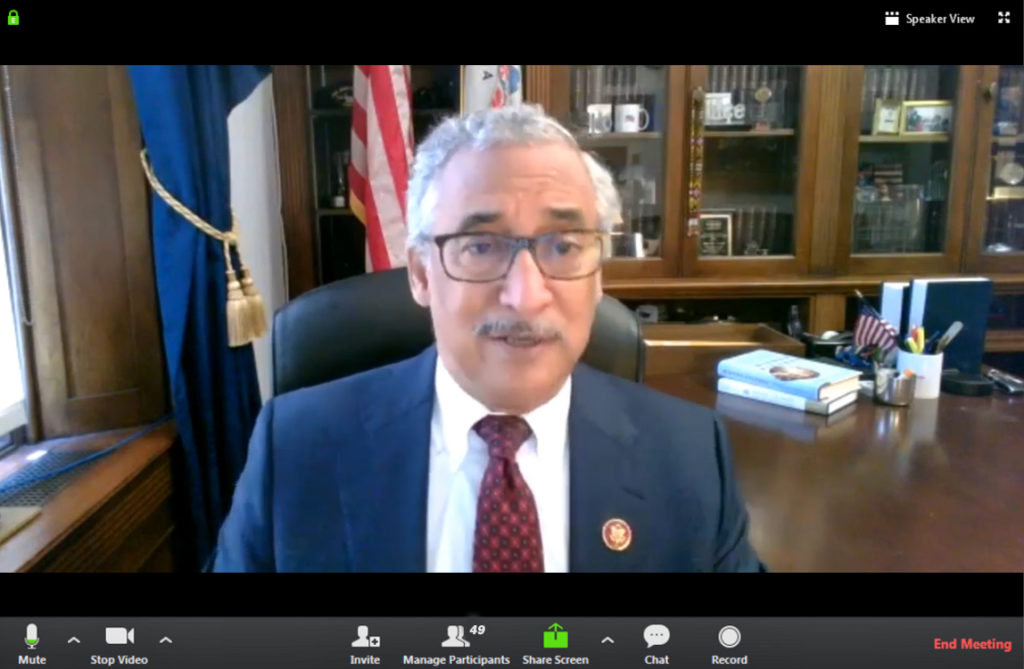
On April 22, the Joint Center hosted an online policy forum with Chairman of the U.S. House Committee on Education and Labor Bobby Scott (D-VA) on education and workforce priorities for Black communities in COVID-19 stimulus legislation. Expert respondents included The Education Trust President and CEO & Former U.S. Secretary of Education John King, National Urban League Senior Vice President for Policy & Advocacy and Executive Director of the Washington Bureau Clint Odom, National Education Association Vice President Becky Pringle, and National Black Worker Center Project Executive Director Tanya Wallace-Gobern.
Along with the Lumina Foundation, the Joint Center conceived of, organized, and participated in the panel session “The Future of Learning and Work in Black Communities” at the virtual conference of ABFE: A Philanthropic Partnership for Black Communities (formerly the Association of Black Foundation Executives).
Spencer participated as a speaker in an April 23 Black Voters Matter virtual press conference in response to several Southern Governors’ plans to open their economies despite the continued threat of the coronavirus in their states. He also participated as a speaker in an April 17 conference call on COVID-19 with the Alabama Conference of Black Mayors.
Political Studies

Spencer published an article, State Power to Regulate Social Media Companies to Prevent Voter Suppression, in the University of California, Davis Law Review. Section 230 of the Federal Communications Act of 1934 generally prevents platforms such as Facebook, Twitter, and YouTube from being held legally liable for content created by third-party users — such as a post by a person with a Facebook page or a tweet by a person with a Twitter account. Spencer’s article explains that Section 230 does not limit the power of States to hold social media companies legally responsible for using data collection and algorithms to target Black voters with suppressive ads, however, because by using these techniques companies contribute materially to discrimination and are thus ineligible for Section 230 immunity.
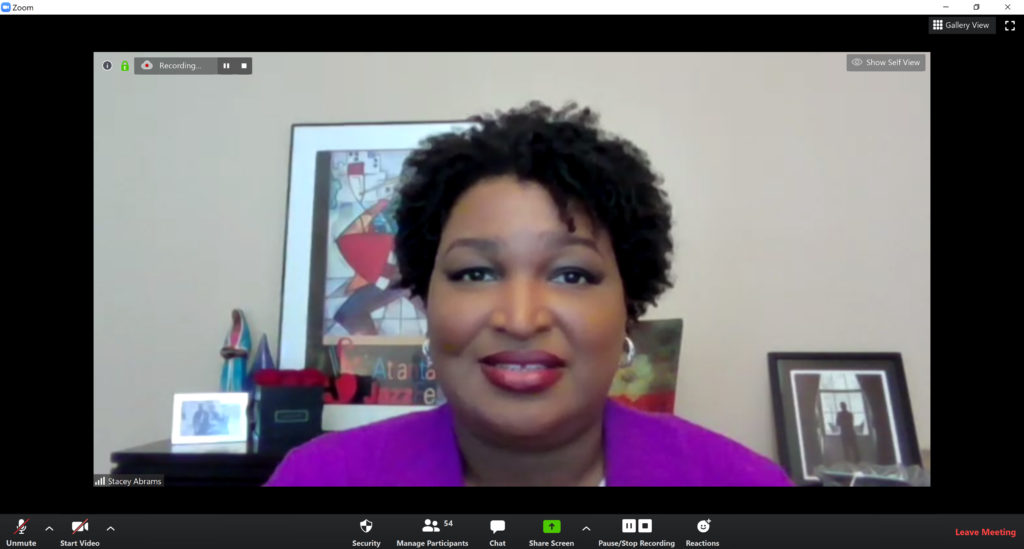
On April 15, the Joint Center hosted an online briefing on accessible vote-by-mail and safe in-person voting for Black communities. The session—organized in partnership with the Leadership Conference on Civil and Human Rights and NAACP LDF—explored safeguards necessary to ensure an accessible vote-by-mail system that does not dilute Black votes, and safe (sanitized and uncrowded) in-person polling places. The expert panelists included Fair Fight Founder Stacey Abrams, Michigan Secretary of State Jocelyn Benson, Black Voters Matter Fund Co-Founder LaTosha Brown, Lawyers’ Committee for Civil Rights Under Law President Kristen Clarke, Leadership Conference on Civil and Human Rights President Vanita Gupta, and NAACP LDF President and Director-Counsel Sherrilyn Ifill.
Spencer also joined the National Council of Negro Women’s webinar on COVID-19 and Black communities to discuss the importance of data transparency during the coronavirus pandemic and ensuring Black communities are “at the table” when Congress returns and begins to discuss stimulus packages, including provisions that allow for accessible vote-by-mail and safe in-person voting.
Podcasts
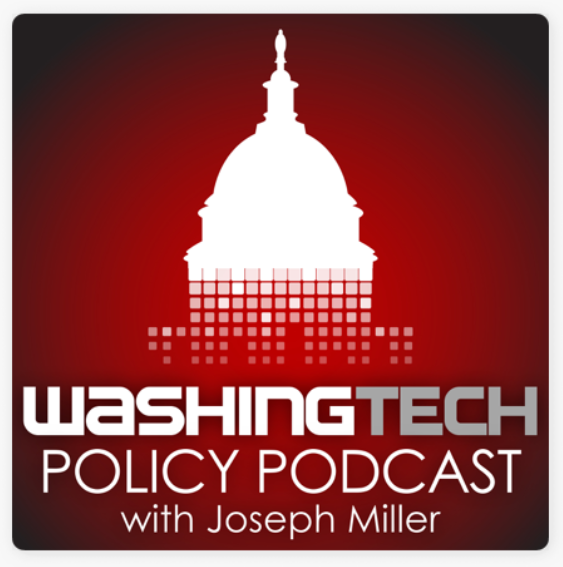
Joint Center Vice President Jessica Fulton joined Joe Miller’s WashingTECH podcast to discuss COVID-19 and Black America. During the conversation, Jessica talked about how the coronavirus will affect Black workers, navigating the digital divide, the Joint Center’s convenings with civil rights organization and think tanks, and more.
On his weekly podcast, WashingTECH Host Joe Miller also spoke with FCC Commissioner Starks on “the communications priorities his office is focused on amidst the coronavirus pandemic,” Open MIC Executive Director Michael Connor on “shareholder actions and social justice in tech,” and Information Technology and Innovation Foundation Director Doug Brake on “digital policy for physical distancing.” The podcast is available on Apple Podcasts, Spotify, and on WashingTECH’s website. Listen here.
Remembering Richard P. Thornell
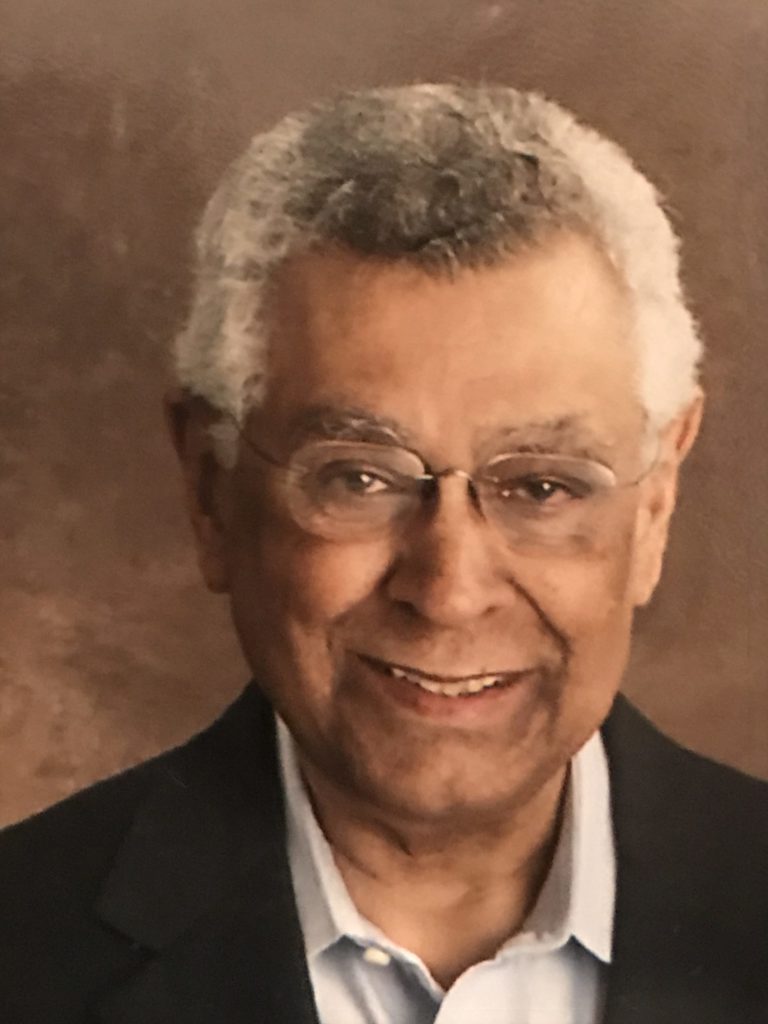
The Joint Center mourns the loss of Richard P. Thornell—a distinguished law professor and founder of the first Peace Corps program—who died April 28, 2020 from complications from COVID-19. Thornell advised the Joint Center on various projects in the 1980s, and he was a consistent supporter of our organization until his death. He also served as a board member and advocate with several civil rights organizations.
After graduating from Fisk University, Thornell became the second Black graduate of Princeton University’s Woodrow Wilson School of Public and International Affairs, and then graduated from Yale Law School. In the early days of President John F. Kennedy’s Administration, he worked closely with Sargent Shriver and Harris Wofford to negotiate and launch the first Peace Corps program in the world. The operation began in 1961 in Ghana.
Thornell dedicated his career to training a generation of African American lawyers as he worked as a Howard University law professor from 1976 until his retirement in 2008, and also served as the school’s general counsel from 1984-1988. He collaborated closely over the years with the NAACP and the LDF, the Council on Foreign Relations (of which he was a member), the YMCA, Africare, and the Phelps Stokes Fund. Thornell was also a charter member of the Beta Mu Boulé of Sigma Pi Phi, and a member of Alpha Phi Alpha. His son Paul currently serves on the board of the Joint Center.
Upcoming
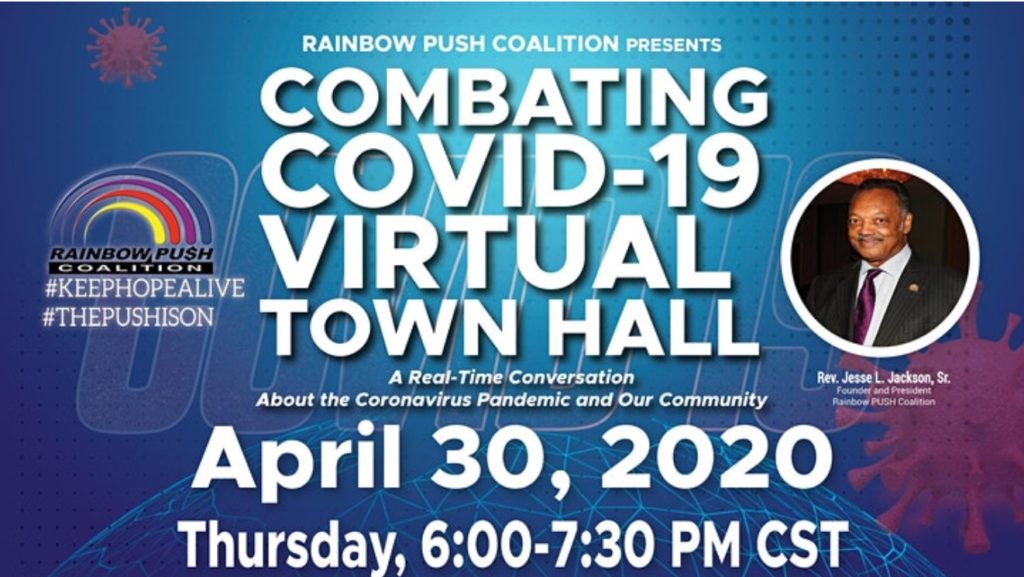
Spencer will join Rev. Jesse L. Jackson, Sr.’s Rainbow PUSH Coalition’s national virtual town hall on combatting COVID-19 on April 30.
Black Communities a Conference for Collaboration is hosting “Black Communities and COVID-20” on May 1.
The Congressional Black Caucus is hosting telephone town halls with Chair of the House Committee on Homeland Security Bennie G. Thompson (D-MS) on May 4 and Chair of the House Committee on Education and Labor Bobby Scott (D-VA) on May 8.

